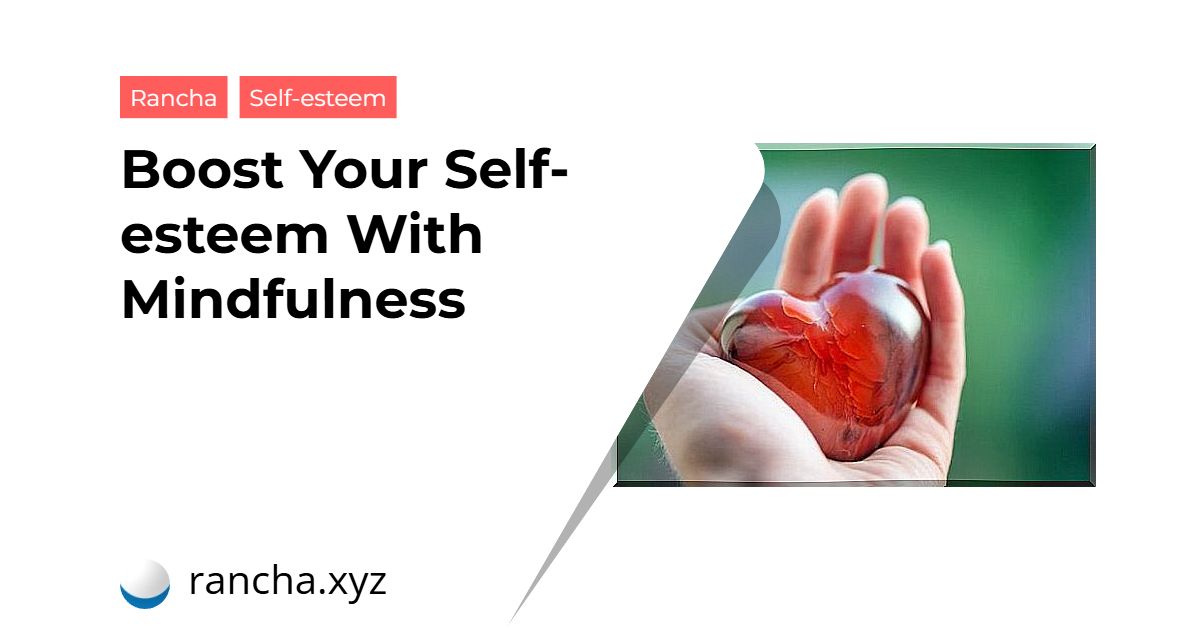Did you know that you can take advantage of mindfulness to improve self-esteem in your daily life? Although defining this concept is not a simple task, it is very important to learn to develop it so that we can live healthier and more fully.
We could say that self-esteem is the emotional part derived from the way we see ourselves, that is, the emotions that arise from the way we believe we are. These emotions, in turn, generate thoughts, behaviors and other emotions that end up reinforcing the self-concept. Therefore, improving our self-esteem is a difficult task, but at the same time an easy one, because we can control these variables with some effort.
In this context, mindfulness encompasses a set of proposals that have a common goal: to recover full awareness, attention or attentive and reflective presence, which consists of being present in the here and now. The proposal is to be observers of what happens to us, without judging. It is about experiencing feelings and being open to experiences with as little prejudice and filters as possible.
The ladder of self-esteem
Let’s understand self-esteem as an element that is primarily sensitive to five processes. These would be as follows:
- Self knowledge. Knowing ourselves, with our defects and our virtues. The positive and the negative are part of our way of understanding life. We must not confuse this with the socially accepted. We can listen to what others think, of course, but we are the ones who decide what to believe, forming our ethics and thus conditioning our self-concept and our self-esteem.
- Self-acceptance. Accepting what we cannot change now or could change, but it is better not to try because it would be a change that would require a lot of resources from us that we are not ready to give. In any case, far from projecting the future, the ideal is to take advantage of the possibility that the present offers to reconcile with the person we are now.
- Self-worth. It is people’s ability to value their own virtues and abilities, both physically and intellectually. This step is one of the most important ones to take: for some it’s a lot of work to recognize that there are skills we don’t have and other things we’re very good at.
- Self-respect. Many people think they don’t deserve what they have or can have. Respecting yourself means giving way to an internal dialogue that strengthens us, not destroys us, nurturing positive and not negative emotions, and setting in motion behaviors that do not harm, punish or reprimand us.
- Self-overcoming. Knowing yourself is the first step to overcoming yourself. If we manage to carry out the previous 4 steps, we will be able to have a good self-concept and a healthy self-esteem.

Mindfulness to improve self-esteem: how to get there
Once we are familiar with the five factors that greatly influence our self-esteem, let’s see how we can work on them through mindfulness meditative practice. It’s about working one point at a time, based on a plan and following an order.
To use mindfulness to improve self-esteem, we’ll do a series of guided exercises and meditations focused on each of the components of self-esteem we’ve detailed above.
Self knowledge
The practice could be started as follows:
We will adopt a comfortable, quiet and relaxed posture, placing our mind in the here and now, moment by moment. We breathe in air and watch our breathing, becoming aware of how air enters through our nose and invades our lungs and entire abdomen. Finally, we expel the air.
First, we must focus on three defects, and then on three of our virtues. Once we are aware of our faults and virtues, we will look at them as a part of us. Let us remember that they are all necessary, that they make us unique and special. In this way, we must observe them without judging them, without judging ourselves.
Gently, we open our eyes and move slowly.
Duration: 10 to 15 minutes.
self-acceptance
The self-acceptance process is, without a doubt, the most difficult step in personal overcoming. Almost all people want to improve something about themselves because they are not happy with some content of their own, which may be related to their body, their personality or their way of acting.
Just as we did with self-knowledge, let’s do a practice related to meditation, but now focusing on self-acceptance. Accepting the characteristics we don’t like about ourselves is not easy, but it is necessary to improve our self-esteem.
We start again by adopting a comfortable, relaxed posture. We take a breath and focus on our breathing. We let go of all our prejudices and judgments, and just accept what we observe. We accept who we are with our positive and negative characteristics, our virtues and our faults, our lights and our shadows.
We fix our attention on those defects that we identified earlier and observe and accept them as part of us. Let’s repeat the following phrase every time we notice a defect: “I accept myself completely and deeply.” This is like saying “I love and respect myself completely and deeply.”
As for the virtues, we went back to inspiring and focused on one of them. We observe virtue. We look and let her go. So, we wake up from this state of meditative semi-awareness and slowly open our eyes, moving our hands, legs and other parts of the body. As we can see, using mindfulness to improve self-esteem is possible through self-acceptance.
Duration: 10 to 15 min.

self-worth
This phase is not the time to be modest. It’s exactly the opposite. Choose a notebook and write down whatever aspect you think is good about you, and value it as it deserves.
Don’t worry about trying to rank these aspects. Each person has different qualities and we should be proud of them.
self-respect
Needs and wants are inherent in living, and are part of any path to happiness. We have to at least try to respect the person we are, seek our abilities and try to save a space for positive valence emotions, whatever the circumstances of a given moment.
Let us then try not to blame ourselves for our mistakes, and not to calculate our feelings of happiness in comparison with other people. If we believe we are doing something good, there is nothing wrong with being happy about it.
Self-overcoming
As the last point through which we can use mindfulness to improve self-esteem, we finally come to self-improvement. If a person knows himself, he can always excel in his personal life.
It is important, as we have said before, to know yourself, accept all of your characteristics, value yourself and respect yourself. Only in this way will we be able to improve ourselves every day and improve our self-esteem, whether with mindfulness or other techniques. This will favor decision making and solving problems that arise in our daily lives.
Summing up what we’ve seen so far, it’s possible to rely on mindfulness to improve self-esteem. For that, we must know ourselves, accept, value, respect and, later, also surpass ourselves. It is important to follow all the points we have just taught. It’s impossible to achieve happiness and be well with ourselves if we don’t follow these different steps.
 rancha.xyz Be free to choose their own route to self-knowledge, health and balance of body and soul.
rancha.xyz Be free to choose their own route to self-knowledge, health and balance of body and soul.




